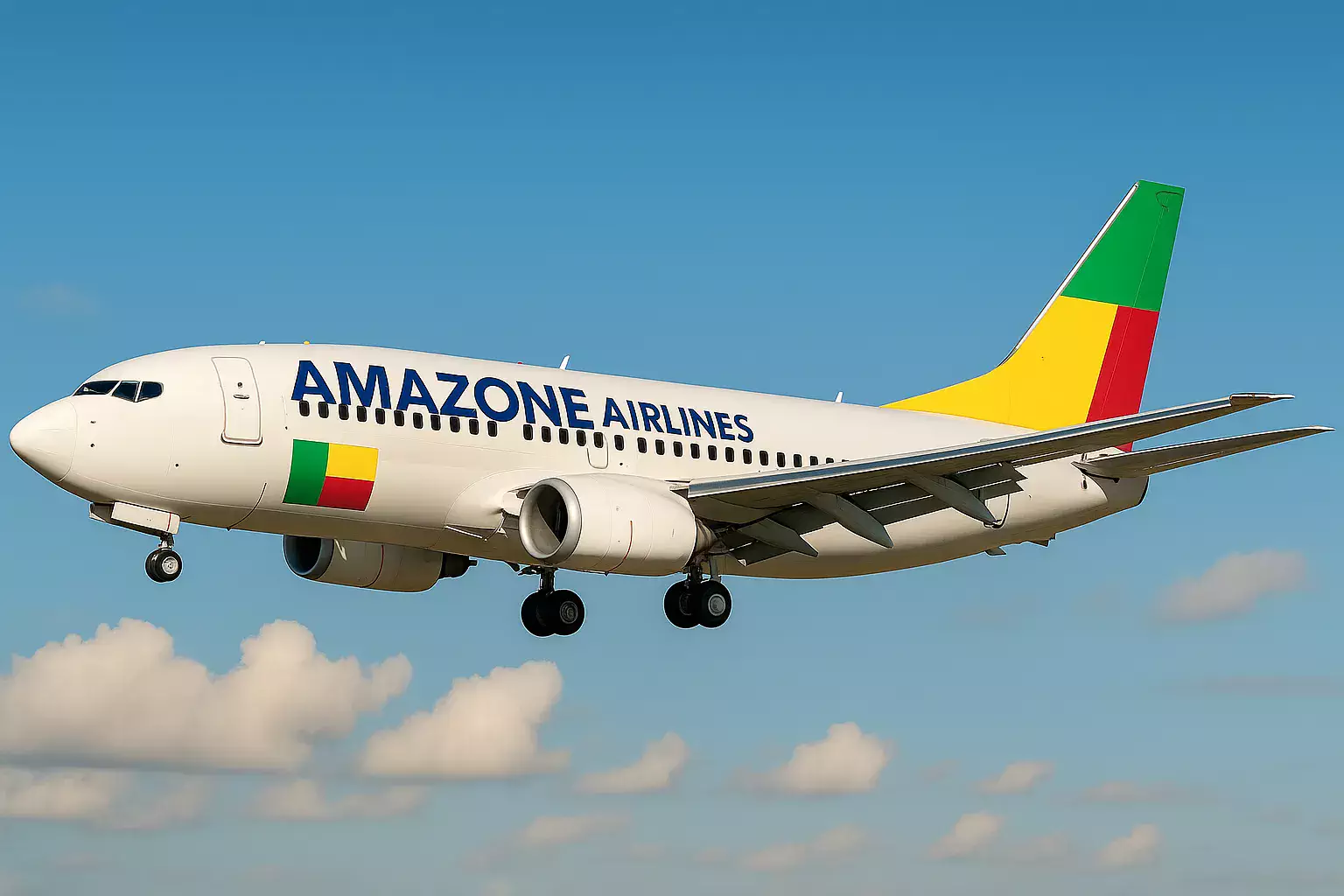In Benin, Why a National Airline Becomes a Necessity
Despite investing over one billion euros in tourism since 2016, Benin remains isolated by air. Without a national airline to connect Cotonou to major capitals, the country’s ambitions struggle to take off. With low connectivity, lost economic opportunities, and increased regional competition, the creation of a Beninese carrier has become a strategic imperative.

SUMMARY
For several years, Benin has relied on tourism as a major lever for economic growth. Driven by the government strategy “Bénin Révélé,” this ambition has translated into colossal public investments. Since 2016, over one billion euros have been injected into tourist infrastructure. Coastal roads, rehabilitation of national parks, museums, cultural centers, beach development, and historical sites are all projects that demonstrate a political will to position Benin as a leading tourist destination in West Africa.
The stated goal is to welcome two million visitors per year by 2030, compared to about 120,000 in 2023. To achieve this, the country is also banking on the establishment of renowned hotel chains. The Sofitel Cotonou Marina, the country’s first five-star hotel, has partnered with the public agency Bénin Tourisme, and the project of a Club Med resort in Avlékété, scheduled for 2026, reinforces this dynamic.
But despite this mobilization, a crucial link is still missing: a national airline capable of directly connecting Cotonou to major African and European capitals.
A Connectivity Deficit that Hinders Tourist Momentum
The Beninese air network remains embryonic. The country has no operational national airline to offer strategic direct links. International flights to Cotonou are operated by a handful of foreign companies, often via indirect routes such as Air France to Paris, Brussels Airlines to Brussels, Qatar Airways to Doha, or ASKY and Ethiopian Airlines via Lomé or Addis Ababa. The frequency of these flights remains low, schedules are poorly optimized, and fares are uncompetitive.
This lack of connectivity, characteristic of West Africa as a whole, forces travelers to endure long layovers or even absurd detours to reach regional destinations. Benin, as it stands, struggles to compete with countries like Togo or Senegal, which are better served and more attractive to tour operators and investors. The absence of a national carrier also deprives the country of leverage over pricing policies and strategic control of its tourist flows.
A Situation that Appears as a Handicap for Business Tourism
Beyond leisure tourism, the entire business travel segment suffers from this deficiency. Congresses, economic forums, investment missions—these events require reliable, frequent, and direct air links. However, due to the lack of such connections, Benin is often overlooked in favor of regional hubs like Abidjan, Dakar, Lomé, or Abuja. The country thus loses opportunities for international exposure and economic benefits.
Aware of this issue, the Beninese government has initiated discussions with Qatar for a direct line between Cotonou and Doha, aiming to boost economic and tourist exchanges. But again, without a national airline, the country depends entirely on the decisions of foreign carriers.
Inspiring African Examples like ASKY and Air Côte d’Ivoire
Other countries in the sub-region have shown that the bet on a national airline can pay off. Togo, with ASKY Airlines, has built a robust model. Launched in 2008 with the support of ECOWAS and the African Development Bank, the company has established itself as a regional hub, with 29 African destinations and a modern fleet. Its partnership with Ethiopian Airlines for code-sharing and training has been a key factor in its success. The Togolese state, now a shareholder, sees it as a strategic tool for economic sovereignty.
Côte d’Ivoire followed a similar trajectory with Air Côte d’Ivoire, created in 2012. In a decade, the company has captured 52% of the West African market, transporting 6.7 million passengers. Profitable again since 2021, it aims to expand its long-haul network by 2025 with the arrival of Airbus A330neo. These two examples show that a proactive policy, supported by strategic partnerships and a long-term vision, can create African air champions.
The Bernardin-Gantin International Airport in Cotonou, despite modernization work, remains modest on a continental scale. It welcomed only 354,085 passengers in 2021, compared to 520,100 in 2019, a decline linked to the pandemic. For comparison, Dakar and Lagos record several million passengers annually. In terms of tourism, the figures are even more telling. With about 120,000 international visitors recorded in 2023, Benin remains far below its ambitions.
This imbalance between massive investments in infrastructure and weak incoming flows makes the national tourism strategy barely sustainable. The lack of direct, frequent, and competitive air links prevents the country from fully capitalizing on its cultural, historical, and natural assets.


Comments